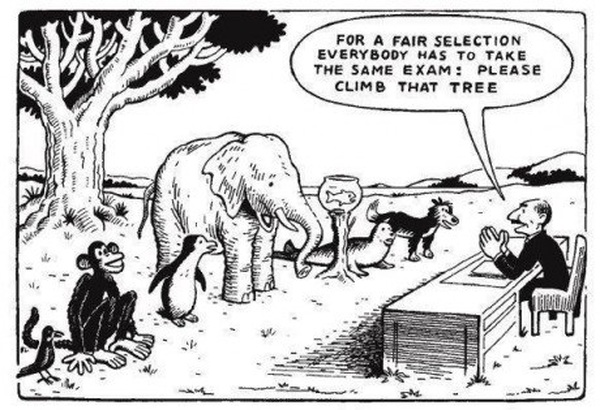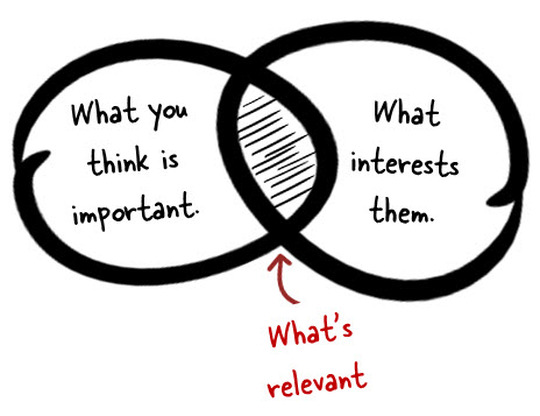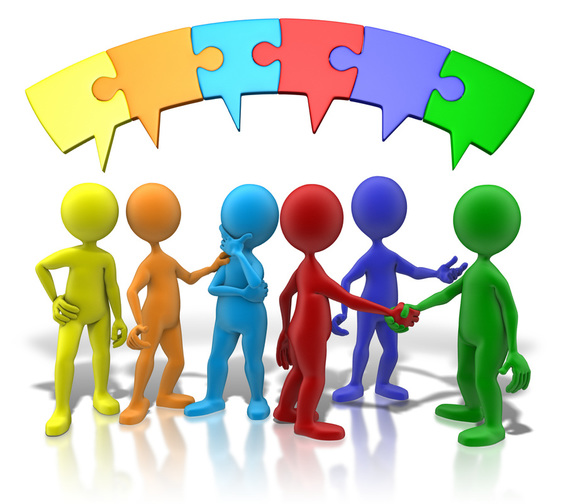Of particular interest to me has been the assessment lens.
A colleague from the Ministry of Education's Assessment Branch recently suggested that I think about "how assessment can offer support for closing gaps in student outcomes for groups of students who are doing less well than others: e.g., LD students, FNMI students, students in Applied math", etc. In particular, she encouraged me to consider how can we have high expectations for the achievement of all students? "We cannot have equity of outcomes", she noted, "unless we start with equity of expectations."
My colleague suggested that this would mean fewer modified expectations, but, perhaps, greater access to accommodations to meet the expectations.
And indeed, that philosophy does seem to align with the guiding principles from Growing Success. But what does that actually look, sound and feel like in practice in a real life classroom?
Increasingly, I am thinking about not only how we assess, but what we assess. Sure, I can have a student conference with me about her understanding in math, rather than write a math test, and I can ask another student to create and send me an Adobe Voice file telling me about the book we read together, rather than a written recount or summary... but at the end of the day, if the math task involved designing and describing dream house floor plans, and the book we read promoted themes of patriarchy, colonialism and hetero-normativity when my student is a transgender black kid from a fundamentalist family living with poverty, then I would argue that even the most differentiated assessment methods may not be, well, equitable!
I'm not saying that my students have to immediately connect on a visceral level with every task I give them -- indeed, I would be the first to say that one advantage of public education is the opportunity for students from all walks of life to be exposed to all manner of new schema... but there has to be some saliency at least some of the time!
In this regard, assessment and curriculum are inextricably linked.
I also feel like although learning to read and write and "do math" (whatever that means) and just generally become a literate citizen is still important, the very definition of literacy itself is changing. What students need to be "competent" at in order to lead successful, fulfilling lives in the 21 Century is vastly different than the skills our parents and grandparents needed to thrive.
As page 10 of this new resource from the Ministry notes, "Studies in health and well-being have found that characteristics such as perseverance, grit, and tenacity are sometimes a more accurate predictor of success than IQ scores. For example, among intrapersonal competencies, the characteristic of conscientiousness (a tendency to be organized, responsible, and hardworking) is “most highly correlated with desirable educational, career, and health outcomes” (Pellegrino & Hilton, 2012, pp. 4–5).
While some jobs still require "knowledge" and basic arithmetic skills, increasingly, the working world demands skills like effective collaboration and teamwork, creativity and problem solving, responsibility, positive attitude, the ability (and demonstrated desire) to learn continuously.
How to divide fractions can be googled. Developing tenacity? Well...
The Role of Descriptive Feedback
I believe that offering students timely, specific feedback can help to develop growth mindset, perseverance and an interest in learning. It also models a collaborative spirit: When I take the time to offer my students feedback, I am suggesting that we are partners in learning, that we are in this together, and can help each other figure it out.
For example, when two of my students recently submitted this "product" in response to a call to explain their understanding of area measurement after a class activity we had engaged in earlier in the day: https://voice.adobe.com/a/BBO3L/ I recognized the value of what they had created, while also identifying the gaps in mathematical understanding.
It was their first time ever using this app, and I thought they did a fantastic job of collaborating, especially considering that both students have special learning needs.
The task had been to define the concept of area.
My feedback?
What an engaging multi-media product you have created to share your current understanding of area! You've defined the concept of area reasonably well, using relevant words and symbols. Next steps: Include the type of unit it is measured in (square units), and describe whether and how the area of different shapes can be found using the same or similar methods (formulas).
For another student who had written a short paragraph noting that area was simply the "inside of a shape", I offered this confirmation and provocation to stretch their thinking: You are right, area is the inside of a shape. How is it calculated? What units are used? Is there a formula that works for ALL shapes? Why or why not?
Taking the time to provide specific feedback and appropriate challenge to move students forward in their thinking, wherever they are, is an example of equitable assessment. Not every student will get identical feedback, but every student will get what they need to move ahead. And, if the purpose of assessment is to improve student learning, then isn't this the whole point?
Gaining Learner Trust
A student in my class recently told me I was the best mentor in the whole world! We'd had some guest speakers in who were talking about mentorship, and after defining what it meant to have a mentor and to be a mentor, students were invited to share their own "mentor stories" if they wanted to.
This student has significant learning needs, and superficially presents as much "lower" than grade level. The more I got to know this student, however, the more I wondered to what degree their learning needs and subsequent anxiety were interfering with their ability to truly show what they knew.
I suspected that the student knew more than they were currently able to show, and I treated the student with respect, dignity and love. Assessment became a conversation we had, over many weeks and months, about what was "important" for the student to show me, and how I could best support that student in showing me.
Not only is this student showing a significant improvement in achieving many grade level expectations in various subject areas, but they are also smiling considerably more than they were in the fall.
The student's explanatory comments that accompanied their "Ms. Teschow for Mentor of the Year" story underscored the role that gaining their trust had played in earning this title in their eyes!
Communication & Collaboration: Diversity in Action
My students bring a rich diversity of culture, language, and personal schema into our classroom, and as a public educator, I feel compelled to honour this diversity and build on it -- not just within the classroom, but beyond it as well.
The range of ability and experience in my classroom makes practising and developing these competencies a breeze! We do a lot of talk and paraphrase in my room, since my students have such diverse experiences to share and connect to in-class learning activities.
Digital technology is our tool of choice when it comes to collaborating and sharing our learning with others.
We recently begun collaborating with a class in Perth, Australia, to learn more about one another's cultures and currency, and to develop our financial literacy. Students who had never used a computer with any regularity until this schoolyear are commenting on one another's work, are creating Thinglinks, Animotos and other Media products that include input from students on the other side of the world, and are chastising their cross-global peers when an assigned deadline is not met!
Needed: More Time
Learning ourselves so we can model for our students, providing descriptive feedback rather than a mark on a page, and getting to know our students multiple identities as learners, as people, as citizens takes TIME, and it ofte seems as though there is never enough of it!
If I could change just one thing about public education, it would be the amount of time we have to prepare for and spend with each student. (I would do this by drastically reducing class size, particularly in socio-economically challenging school communities, and by ditching the provincial report card in its current incarnation, but that's all fodder for another blog post, and one I may never get to write!!!) Freeing up more time for teachers to read, research and collaborate with colleagues, and to spend directly with their students, supporting their learning, would -- in my opinion -- profoundly change (for the better!) the access that students have to robust assessment opportunities with their teachers.
If we don't make space for our students to explore the future with the guidance and supports they need to do so effectively, and offer them the descriptive feedback they need to progress along the way, we risk inadequately preparing them for that future.
Teaching as an act of social justice can be extremely rewarding, especially in concert with equitable assessment practice. But to do it effectively is incredibly time-consuming. Time for pedagogical self development would be an excellent first step to achieving better outcomes for our students!






 RSS Feed
RSS Feed